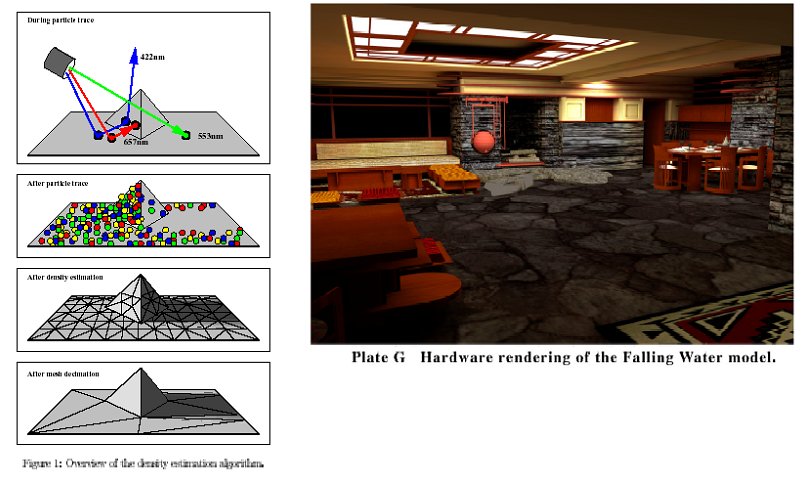|
|
[WHSG97]
Cornell University Program of Computer Graphics |
|
||||
Global illumination using local linear density estimation.Bruce Walter, Philip M. Hubbard, Peter Shirley, and Donald P. Greenberg.ACM Transactions on Graphics, 16(3):217--259, July 1997. This article presents the density estimation framework for generating view-independent global illumination solutions. It works by probabilistically simulating the light flow in an environment with light particles that trace random walks originating at luminaires and then using statistical density estimation techniques to reconstruct the lighting on each surface. By splitting the computation into separate transport and reconstruction stages, we gain many advantages including reduced memory usage, the ability to simulate nondiffuse transport, and natural parallelism. Solutions to several theoretical and practical difficulties in implementing this framework are also described. Light sources that vary spectrally and directionally are integrated into a spectral particle tracer using nonuniform rejection. A new local linear density estimation technique eliminates boundary bias and extends to arbitrary polygons. A mesh decimation algorithm with perceptual calibration is introdued to simplify the Gouraud-shaded representation of the solution for interactive display.
This paper is available as a PDF file WHSG97.pdf (4.5M).
| ||||||
| ||||||
